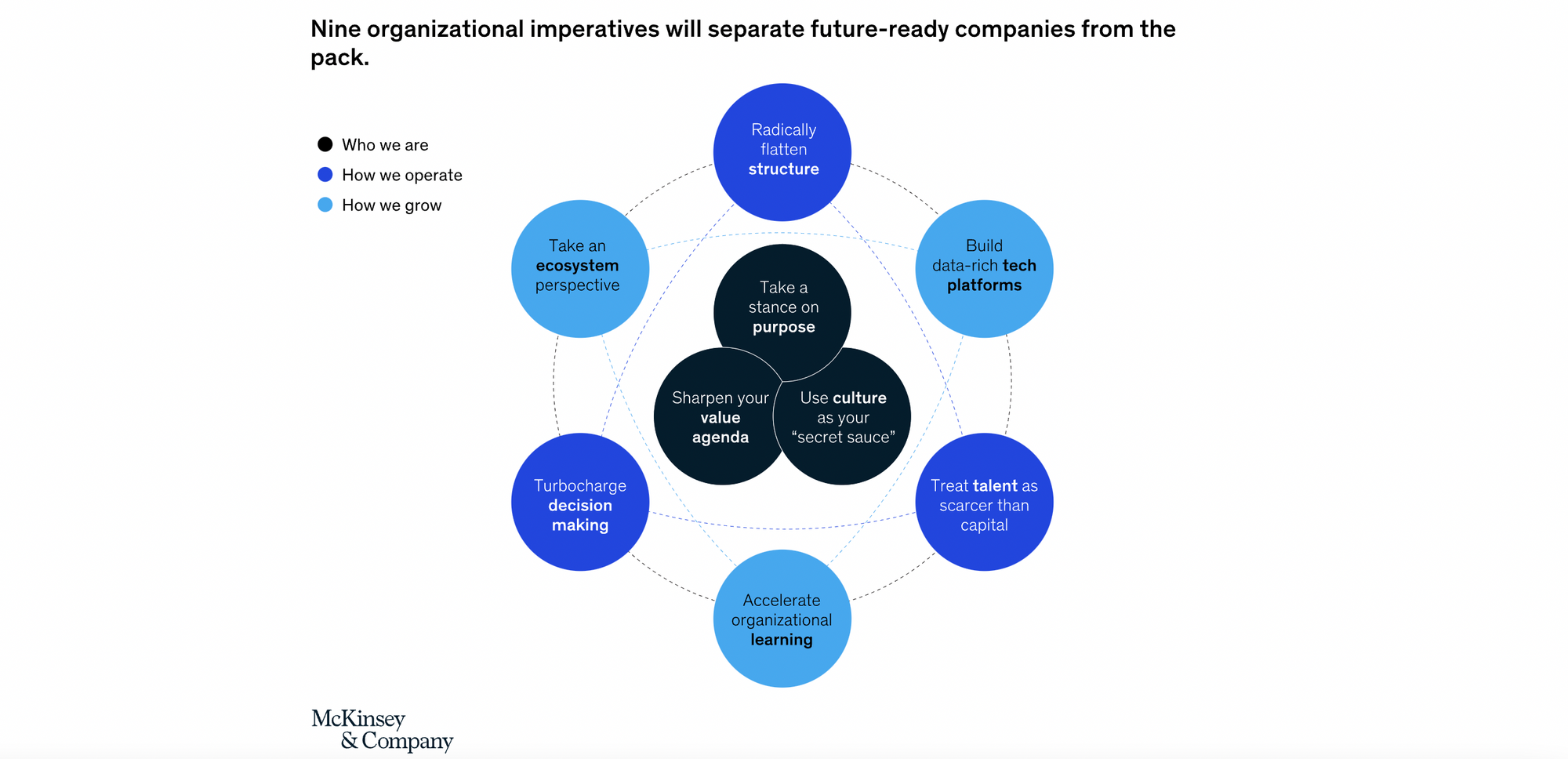What are the key strategic focus areas that'll help your company get ready for the future?
9 keys to unlocking the future of your organisation

The future has suddenly arrived.
It's as if a magic switch has been flipped somewhere and all of a sudden you have organisations that are geared for the future, and the rest; that are not.
What happened?
The truth is that a whole lot of forces of change have converged over the last couple of years to radically transform the business context. Technology has been a dominate force of this change, as has the pandemic, an evolution in social behaviour and new more agile ways of thinking and doing.
What now?
The way business has been structured and operates is largely the same as it was a hundred years ago. Most companies use structures and thinking that is just no longer relevant or practically useful anymore. This calls for all organisations to embark on a major rethinking and reinvention of how they do things.
Now it the time for this change to happen with some urgency.
In the research that they have conducted with their clients, McKinsey published an article highlighting their 9 keys to the future, that they feel are necessary to transform for any organisation to ready itself for the future.
These areas address in detail a better understanding of (1) who an organisation is, (2) how it operates and (3) how it plans to grow.

Here's our summarised interpretation of their findings as to where the key focus-areas are (as well as a few added suggestions of our own):
- Fine-tune self-awareness: Modern organisations need to develop a strong purpose, have a deep understanding of what value they create (and for whom) and need to leverage their unique internal culture as their key differentiator. Even though there is wealth of information around these aspects of organisational development, it's still unbelievably surprising as to how little most companies know themselves. An organisation can no longer successfully and sustainably operate with a simple focus on financial metrics. Get the accountants out of the strategy room and start uncovering your true essence of personality.
- Develop agility and speed: Future-ready organisations need a modern, flat organisational structure, they need to be able to make data-driven decision fast and need to attract and retain great, result-driven talent and customers.
- Scale and grow positively into the future: Modern companies actively adopt and encourage a mindset of optimism that is constantly scanning the horizon for opportunity and using professional foresight as a competitive advantage . They leverage open innovation models through a ecosystem of win/win strategic partnerships with internal and external stakeholders. These companies value data and use the valuable insights from data analytics to improve their approach and focus on nurturing a company-wide mindset of curiosity and exploration with the intent of constantly improving the quality and desirability of the value they create.
You'll probably agree in most cases, management will attempt to tick the box of each one of these areas, but there is no hiding from reality. Organisations need to develop outstanding practical competence in these areas in order to thrive into the future.
How does your organisation stack up here?
Do you feel confident that you're on the right track?
What's obvious is that modern businesses are never done, they never really arrive at their destination. As the world changes, so to do they evolve with it.
More:

Clarify your strategic intent
Over the years, Jonathan Cherry has consulted to numerous organisations helping them clearly define their strategic intent and strategy map for accelerated business growth and resilience in uncertain times.
If you need a facilitator to take you through this process for your organisation, please get in touch here to chat with Jon.


